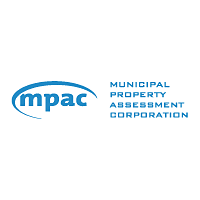|
|
| National Bank of Canada (Photo credit: Wikipedia) |
And here's some good news for those looking to renew or apply for new mortgages this year:
The Bank of Canada lowered its growth forecast for 2013 today, keeping its benchmark interest rate steady at one per cent for the 19th consecutive time...."The slowdown in the second half of 2012 was more pronounced than the Bank had anticipated," the bank said in a statement posted on its website today.
In layman's terms, that's the bank's way of saying it is less likely to raise rates than it used to be.
"At a minimum that removes talk of 2013 hike risk and should cause a change in consensus forecasts," Scotiabank economist Derek Holt noted.
While now there are no hikes expected for 2013, it doesn't change the new legislation that took place last summer which was fully implicated by December 2012.
It's tougher to get a mortgage now than it was two years ago. Those 0 down mortgages are a thing of the past.
To recap the new mortgage regulations, here's what's changed:
Until the summer of 2008, it was possible to buy a home in Canada with a zero down payment (in other words, the entire cost of the home was borrowed), and to amortize repayment of that cost over a period of up to 40 years. Successive changes implemented by the federal government have whittled away at those practices. Borrowers are now required to have at least a 5% down payment on a residential home purchase. And, under the new rules announced recently, the maximum amortization period on a residential mortgage will be reduced from the current 30-year maximum to 25 years.
When a would-be home purchaser applies for mortgage financing, there are two ratios commonly used to measure the risk associated with the borrower’s potential debt. The first of those, the gross debt ratio (GDS), is the percentage of the borrower’s gross (i.e., before tax) income needed to pay housing-related expenses, including mortgage payments, property taxes, and the cost of heating the home. The second ratio, the total debt service (TDS) ratio, is the percentage of the borrower’s gross income needed to pay all current debt obligations, including housing related expenses. The latest set of changes announced by the federal government will require, for CMHC-insured mortgages, that the borrower’s GDS not exceed 39% and that his or her TDS does not exceed 44%.
Put another way, where a borrower seeks to buy a home and obtain a mortgage with less than a 20% down payment, he or she must be able to show that paying for housing related expenses will consume less than 39% of annual gross income and that all current debt obligations can be met with less than 44% of annual gross income. A borrower who cannot satisfy those requirements will not be eligible for a CMHC-insured loan.
Many Canadians have taken advantage of recent increases in real estate values by borrowing against the equity they have in their homes, either by refinancing the mortgage or by taking out a home equity line of credit. Their ability to do so will be somewhat curtailed after July 9, as the maximum mortgage (or home equity line of credit) amount which can be borrowed on a refinancing will be limited to 80% of the value of the property. The current limit of 85% was set in March 2011; prior to that date, the limit was 90%.
Finally, the federal government will no longer be providing CMHC insurance on homes which are purchased for more than $1 million. Consequently, purchasers of homes costing more than $1 million will be required to have at least a 20% down payment.
It's all about planning ahead now. If you are considering a purchase, call your lender or contact your Realtor who can put you in touch with a lender and begin that process before you begin the search for a home. Nothing would be more disappointing than to begin your new home search, finding that perfect property and finding out you do not qualify for the funds necessary to close.
While some of the lending criteria now seems strict, its really the Federal Governments way of keeping Canadians from overspending and over buying homes they cannot afford while managing the debt that they do have. Nobody wants to be house poor.
As always, if you have any questions regarding real estate in any regard, it's better to have an answer than to wonder, so email me any time at
nicole@gtalisted.com
Thanks!
Nicole Kreutzberg, Realtor
Sutton West
www.gtalisted.com









